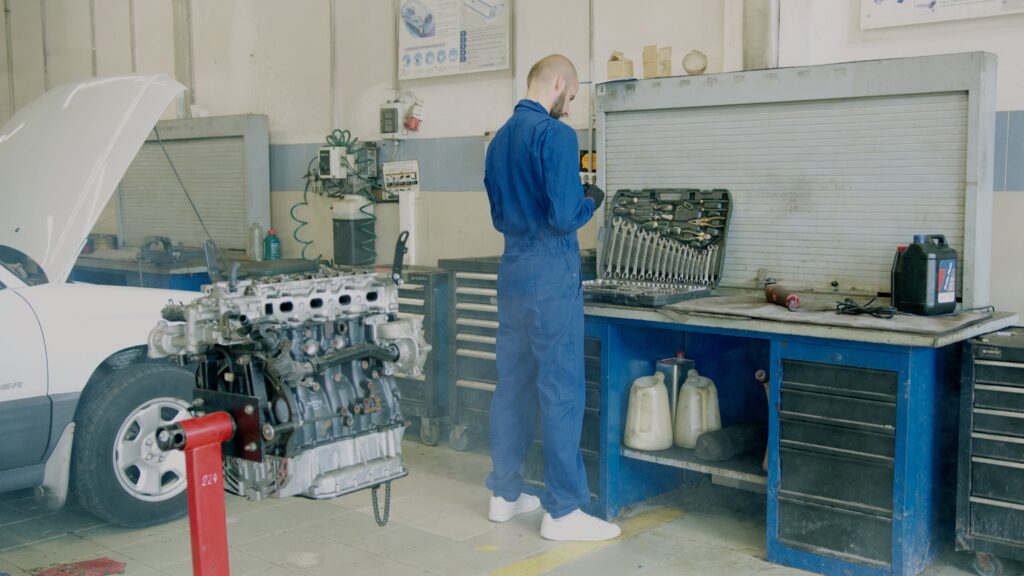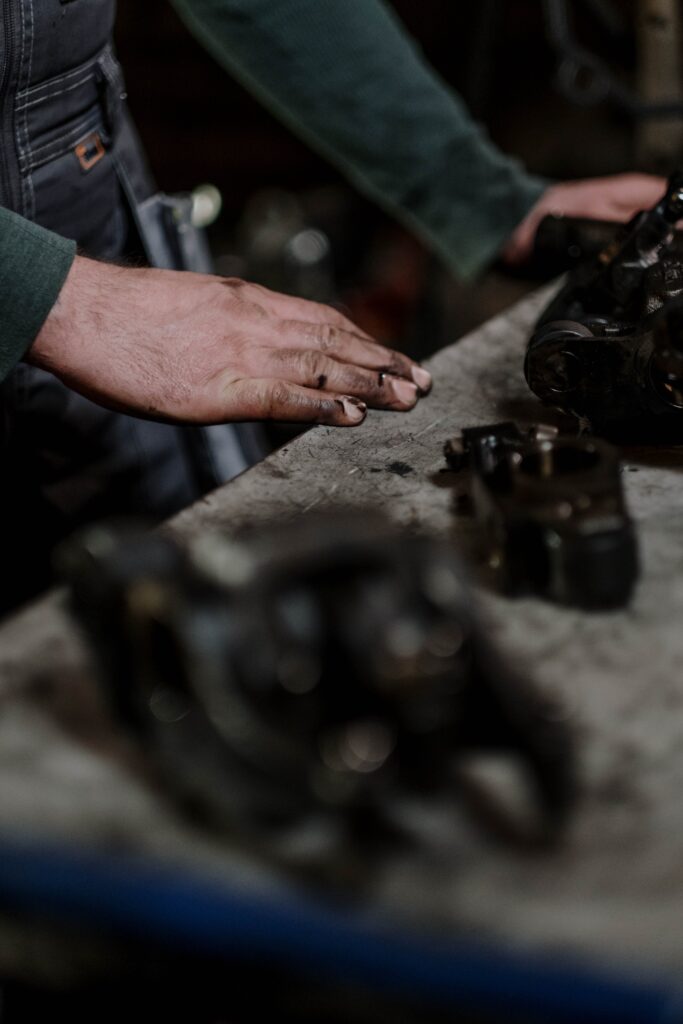Have you ever been led astray, overcharged, or taken advantage of at the dealership? As a woman, this author has heard it all. Dealership service advisors sometimes add bogus charges to a repair bill with the assumption that a woman, or a young person, might not understand and catch them. A few of my favorites have been “blinker fluid”, a $199/hr. labor fee for changing a battery, and several other inflated quote stories from my friends and colleagues.
To avoid corporate tricks, many people choose smaller repair shops for maintenance on their vehicle. It’s not a guarantee that you’ll have a lower bill, but smaller shops offer more flexibility. Dealerships are limited to using only OEM parts, (OEM stands for original equipment manufacturer), whereas independent repair shops can use aftermarket parts and avoid manufacturing delays. Furthermore, aftermarket parts sometimes even have changes and fixes to notoriously defective applications that OE and Dealerships do not always have the ability to sell. The biggest advantage is the smaller shops aren’t controlled by a hierarchy of managers, quotas, and corporate training practices. The main benefit to getting service at a dealership is for owners of new vehicles that are still under warranty, but after that, the benefits thin out. Dealership service carries a hefty price tag considering their business model, overhead, and supply and demand of OEM parts.

Overall, a local, independently owned repair shop is a lower-cost option suitable for older and preowned vehicles. Mechanics in smaller shops often are more open about the details of a repair, spending the time to educate the customer on the problem and possible solutions. This obviously isn’t true 100% of the time, but we find most of our engine shop customers feel compelled to serve customers the right way, as they have the freedom to do so.

However, if you find yourself in the position where your only option is to visit the automotive overlords at the car dealership, we’ve compiled a list of common traps and knowledge you can use to avoid them.
#1: Suspicious Dealership labor charges
Often overlooked on your bill, labor charges are the most common tactic used by service centers and mechanics to force extra cash from your wallet. It’s ok to question these charges, your service advisor should have nothing to hide. If you are seeing charges for services that you did not specifically request, such as steering checks or fluid flushing, your bill may be getting inflated with line items that might not have even been performed.
#2: Show me the parts!
Although necessary over extended periods of time, engine flushing, additives, and new air filters are not always needed in every service. If you have doubts that a part really needed to be changed out so soon, it is not unheard of to request to see the discarded items, such as air filters, to ensure that they really were worn or dirty. Secondly, this can serve as proof that they have indeed been replaced.
What Else Can You Do?
The best way to avoid the most common rip-offs is to read your vehicle owner’s manual. That’s right, READ it! Most of us never touch it from the moment we purchase our vehicle, however this book will tell you EXACTLY which services are recommended at exactly what mileage or vehicle age. You can also research the best rated mechanics in your area and give them a try. You might find more flexible service, as well as the opportunity to support a local business, is a great option for you and your vehicle!
Worried about quality? As a customer, you can ask your repair shop where they source their parts, to make sure you are getting top quality installed in your vehicle. Enginetech loves our repair shop customers, and we work hard to provide the best quality parts available to them.



0 Comments